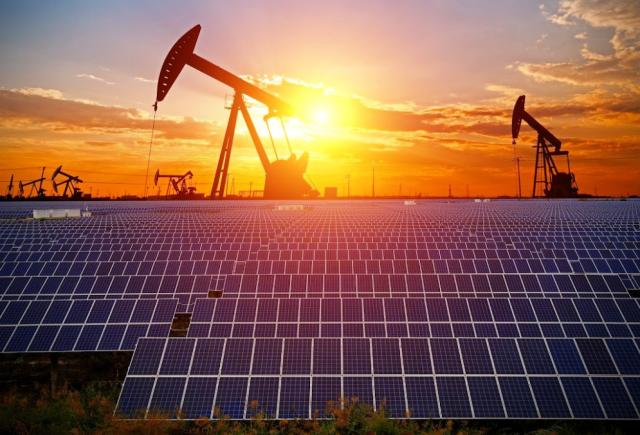
Even though the UAE are the sixth largest oil and gas reserves holder, the country’s energy strategy for 2050 has a target of 50% clean fuel, said energy minister Suhail Mohamed Al Mazrouei. (Source: Shutterstock.com)
ABU DHABI—The annual Abu Dhabi International Petroleum Exhibition and Conference (ADIPEC) held last week witnessed several discussions on energy policies and renewable energy, where ministers and global leaders talked about government policies for access to affordable energy, in addition to their economic and environmental benefits.
During a Ministerial and Policy session, energy ministers from Pakistan, Senegal and the United Arab Emirates (UAE) addressed access to sustainable and affordable energy supply while embracing both oil and gas and renewables.
Suhail Mohamed Al Mazrouei, minister of energy and industry of the UAE, said that governments must design long-term energy policies, which need to address affordability of available energy sources, environmental impact on future generations and a global commitment to affordable and cleaner forms of energy.
Al Mazrouie also pointed out that the UAE has made efforts to design strategies to tackle all these points and has to succeed in providing access to energy to the entire population of the country. But sustainability and affordability to energy is the main question, which governments must consider, while designing energy strategies.
He added that cleaner forms of energy are cost-efficient, highlighting the fact that UAE’s strategy of energy efficiency will save 30% of gas that is used today and that will allow policymakers to strengthen the collaboration between different forms of energy. UAE is on its trajectory to provide access to clean energy, highlighting the reduction of solar energy cost to around 1.7 cents per kilowatt-hour (KWh) within six years, which, he said, is “almost free.”
“Even though we are the sixth largest oil and gas reserves holder, our energy strategy for 2050 has a target of 50% clean fuel,” he said. In addition, public-private partnerships must target “low-hanging fruits.” That means investment in technology such as turbines that not only bring operational efficiency by reducing emissions, but also gives access to cheaper and cleaner fuel.
Mouhamadou Makhtar Cissé, minister of petroleum and energy of Senegal, said it is important for the government to identify the “real needs” and focus on providing increased access to electricity across the nation. “In Senegal, we have 42% access to electricity and we want to increase this access to reach 65% access in several areas,” Cissé said. “We want to consolidate human capital and address issues such as energy, which also overlaps with other industries. This will enable us to promote electrification in the south of Sahara.”
He added that artificial intelligence (AI) and Industry 4.0 is important for the country, with newer technology enabling the energy industry to prosper. “But we also have to think about our community and global commitments to reducing carbon emissions,” he said.
In 2012, the government of Senegal outlined a plan to generalize the use of more mix of energy sources. Aligning with the plan, producers of energy are working on major projects for solar energy. Senegal has discovered 1 billion cubic meters (Bcm) of gas, and is looking to invest in infrastructure and accommodate energy policies to attract international oil and gas companies to develop its industry. “For Africans, the priority is access to energy,” Cissé said.
Nadeem Babar, special assistant to the Prime Minister on the petroleum division of Pakistan, emphasized the impact of policies to energy accessibility. He added that previous policies were a barrier to Pakistan’s potential economic development.
“We have seen the economy being choked because of lack of supply of energy in the past,” Babar said. “It is very close to our heart to design an industrial policy that dovetails with energy policy so the industry can flourish.”
Additionally, energy has been a serious problem in the country and a shortage of energy supply was estimated in the early 2000s, which has contributed to a loss of 3% to 4% of GDP.
Babar noted five pillars for a paradigm shift in energy transformation: availability, affordability, sustainability, responsibility of use and the fourth industrial revolution, which will convert brainpower to machine power. “It’s going to change the character of our industry and is going to change how people live,” he said.
In line with the pillars of energy transformation, Babar said the new government is optimistic of providing 75% of the total energy from green sources by 2030, including solar, wind, hydro, biomass and nuclear energy. The government also plans to reinvigorate the gas industry.
“In addition to the renewables stream, we are opening up our E&P sector in a major way by demolishing regulations and removing approvals,” he said. The government of Pakistan also plans to launch 40 exploration blocks over the next year.
